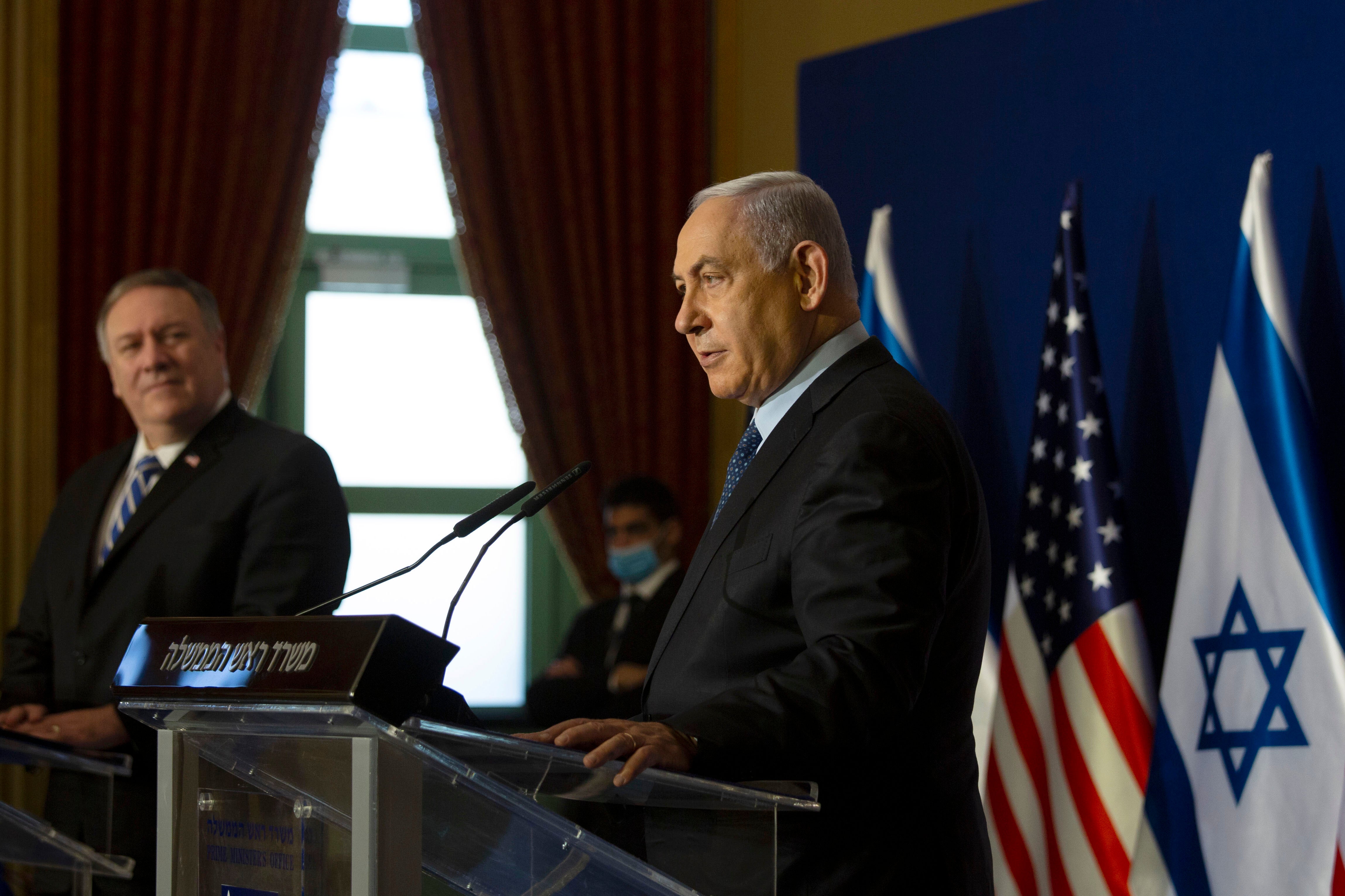What does the ‘aborted’ summit mean for Saudi-Israeli relations?
Sean O'Grady considers whether the arrival of the Biden administration could lead to warmer ties between the two nations


My enemy’s enemy is my friend” is an ancient saying that has found many applications over the centuries. The latest is for the obviously uneasy and clumsy pas de deux between Israel and Saudi Arabia, and the recent summit that never was in Neom.
The meeting, that is, between the Israeli premier, Benjamin Netanyahu, and the crown prince of Saudi Arabia, Mohammed bin Salman (MBS). They’re not exactly pin-up boys for the international human rights movement, but the mysterious meeting has the distinction, depending on which side you believe, of being abandoned even though it never took place. Conveniently for the summit that never was, the outgoing US secretary of state, Mike Pompeo, was in the region for the G20 summit.
Traditionally and formally, Saudi Arabia and Israel are enemies. Saudi Arabia’s stated attitude to Israel is that it should abandon the territories occupied in the 1967 war and afterwards before any rapprochement can take place. The king of Saudi Arabia, who has delegated most of his powers to the crown prince, holds to UN Resolution 242, and the Arab League policy that a proper Palestinian state be established before diplomatic relations with Israel begin and an embassy opened.
Others – most notably the United Arab Emirates, Sudan and Bahrain have moved on – with the enthusiastic support of the Trump administration. The hope, on the American side must have been to secure the prize of Saudi formal or informal recognition of Israel. It would have been a final achievement for the Trump administration, and added to pressure on the Palestinian Authority to find an accommodation with Israel.
What’s more, it would have solidified the de facto alliance between Israel and Saudi Arabia over their (and America’s) common enemy, Iran. Iran’s nuclear ambitions and sponsorship of terrorism pose mortal threats to Israel and Saudi Arabia, as well as western interests in the region. With Russia aligning itself with Iran (under the same principle that the enemy of my enemy is my friend), the two sides and their associated factions and groups across the Middle East, have conducted proxy wars and hostile terror campaigns for many years, from Lebanon to Iraq to Yemen.
The current business at hand is the arrival of the Biden administration and another reset in foreign policy. In that field, as Donald Trump has shown, a US president has much more freedom and can make a difference regardless of Congress. Joe Biden has made clear he will rejoin the Iran nuclear deal (with the EU, Britain and Russia) and, logically, be less keen on Israel bombing Iranian weapons facilities. Biden is also more sympathetic to the Palestinian cause and committed to the conventional two-state solution (though Biden would leave the US embassy in Jerusalem).
For his part, the Saudi prince must worry that the Democrat administration will take a tougher line on human rights abuses and the murder of Jamal Khashoggi, threatening US arms supplies and diplomatic support to the kingdom.
Hence the meeting and hence the sensitivities around it, particularly for MBS. Like every other ruler in the Gulf, MBS has to balance the religious fundamentalists in his own country with the national interest, even though his own Sunni theocrats might share his suspicion of the Shia ayatollahs in Qom and Tehran. As well as domestic opinion and his reputation in the wider Arab ranks, MBS also has to consider his aged father, King Salman, 85 on New Year’s Eve.
In any event, the publicity, probably derived from Israeli leaks, and an attack of nerves by the Saudis saw Netanyahu and his entourage get back on their private jet after a couple of hours. The mission might have been aborted, but it achieved a few things. It must have reminded Biden who his real friends in the region are, and that they talk to each other, if only indirectly. They will have made the parallel point to Iran, if it was in any doubt, about their determination to retain the Washington-Jerusalem-Riyadh alliance of convenience. President Biden will certainly reset things a little with Iran, and certainly won’t order the assassination of any Iranian generals, as President Trump did, but he is conventional enough to also want to cement America’s special relationships with Saudi Arabia and Israel.
Join our commenting forum
Join thought-provoking conversations, follow other Independent readers and see their replies
Comments
Bookmark popover
Removed from bookmarks